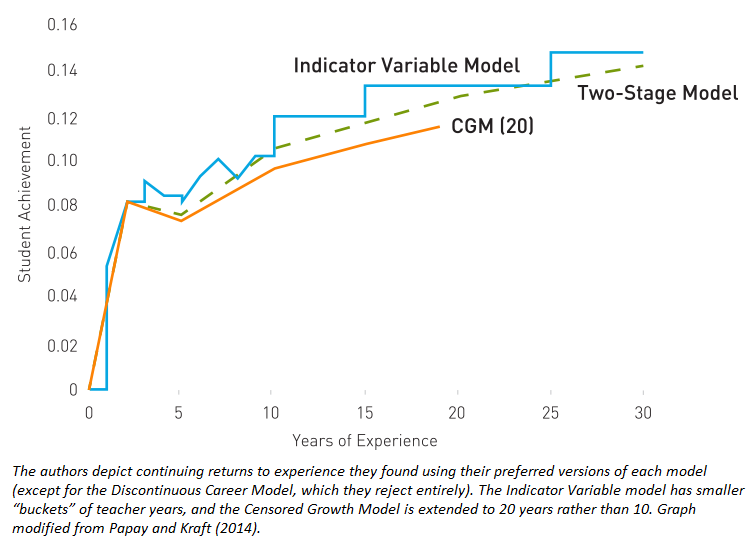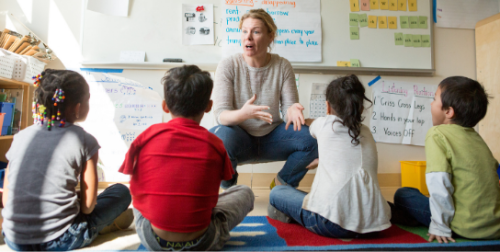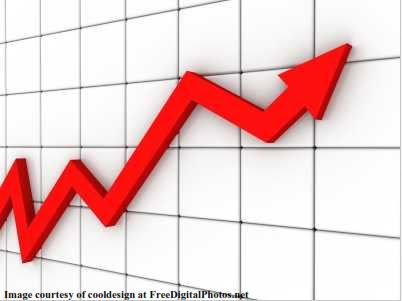Things that get better with time: fine wines, first edition books and even teachers in spite of prevailing wisdom. That’s the claim of a new study that asserts that there is in fact “returns to experience” for teachers (the technical term for the improvement teachers experience due to more years in the classroom).
It’s not that this new study disagrees with previous research that teachers tend to improve rapidly their first few years in the classroom, with growth tapering off somewhere around years three to five. But most studies have found that by year five (or at the most year 10), teachers have hit a plateau, and if they get better after that point, it’s due to some external forces (“year effects”) like a new professional development or curriculum, and not just because they’ve spent more years in the classroom. These academics, John Papay and Matthew Kraft of Brown University, beg to differ.
Papay and Kraft analyze the econometric models used in previous studies and identify some biases that might have led to the findings. They also take another look at these existing models to tease out whether any growth in effectiveness is due to “year effects” (external forces) or “experience effects” (as suggested, time clocked in a classroom)—an issue of collinearity, for the statisticians in the audience.
Papay and Kraft’s conclusions read like Goldilocks. This one’s not just right because it assumes that returns to experience stop after 10 years, so it underestimates the effect of experience; this one’s not just right because it puts teachers into buckets of experience that are too wide, also underestimating effects; the third one’s off because it compares teachers who work continuously with teachers who take a year or more off from teaching and return, and ignores that these groups’ effectiveness might be quite a bit different.
The authors then offer their own model, but this too has some acknowledged problems. Their “two-stage” model proposes using teacher fixed effects (comparing each teacher to his/herself) to calculate returns to experience,but it assumes that novice teachers now entering the profession are about the same as novice teachers a decade ago, which is probably not the case, as different generations of teachers differ in meaningful ways. Here though, their model finds that while teachers’ return to experience still slows after 5 years, it never flatlines completely—teachers continue to improve after more than a decade of teaching.
Estimated productivity-experience profiles in mathematics using versions of the Censored Growth Model, Indicator Variable Model, and Two-Stage Model that they have tweaked to reduce sources of bias in each model

So is this study enough to upend prior assumptions about teacher improvement over time? Probably not. It’s one study up against many and the results aren’t all statistically significant (for math, moderately significant only until the 15-year mark, and for reading, not significant for the past 5 years).
What would it take to get a model that is close to “just right”? According to the Center for Education Data & Research’s director Dan Goldhaber, we’ll need patience, about 30 years with a large group of teachers who stay in the classroom that whole time and a solid data set with which to evaluate them. We’re glad we already know that wine and a good book can age gracefully while we wait.
More like this

How are districts observing and providing feedback to teachers?
Frequent observations and feedback can help teachers excel in the classroom.

Does experience make the best teacher?
At first blush, this new study appears to confirm the well-established finding that more experienced teachers are not really much more effective than less experienced teachers. However, there’s a novel and surprising twist on this common refrain. There’s one group of teachers who continue to gain effectiveness the more years they are in the classroom.

